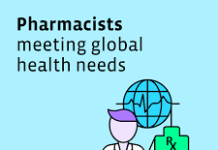In 2005, the African Union (AU) assembly, comprising 55 African ministers of health, adopted a roadmap towards universal access to prevention, treatment and care. The AU policy position is “to pursue, with the support of our partners, the local production of generic medicines on the continent and to making full use of flexibilities within the Trade and Related Aspects of Intellectual Property Rights (TRIPS) and DOHA Declaration on TRIPS and Public Health.”
This decision by the health ministers is in the right direction and offers many advantages, which include foreign exchange savings, job creation, facilitation of technology transfer, prospects of developing cheaper raw materials, increased supply sufficiency and stimulation of export markets. This is besides the national pride and self-esteem that is very much needed in developing countries.
A 2008 International Finance Corporation (IFC) report showed that 70 per cent of Sub Saharan Africa’s estimated $1billion in annual pharmaceutical production is domiciled in South Africa; with Nigeria, Kenya and Ghana contributing only 20 per cent. Six years after, we believe this data is about to change, especially with three more pharmaceutical firms – May &Baker Plc., Chi Pharmaceuticals and Evans Plc. – achieving WHO prequalification status, bringing to four, the number of Nigerian firms accorded the status. Swipha attained the prestigious qualification some months earlier.
At the moment, WHO prequalification is critical to sustainable local productivity in Africa, given the low consumer and institutional purchasing power in the continent, especially for endemic diseases like malaria and HIV/AIDS, for which international funding has become the lifeblood. WHO prequalification is necessary for firms to be able to access these funds, for the local production of the necessary medicines.
While we applaud these achievements, it must be emphasised that, to achieve sustainable development in pharmaceutical innovation, much more efforts would be needed, particularly in the areas of research and development, adequate regulatory frameworks and funding structures. With the projected increase in chronic disease burden and rising infectious disease burden in Nigeria, there is a great need for increased funding of health care systems and research for health in a way that favours indigenous capacity development. Our R & D institutions are in dire need of domestic funding besides the usual international funding. In the pharmaceutical industry, adequate research – industry collaboration are critical for sustaining competitiveness.
At present, Nigeria unlike South Africa which invests 0.9 per cent of her GDP in R&D, invests less than 0.3 per cent. This focus on knowledge building is important as only South Africa possesses the capacity for development of Active Pharmaceutical Ingredients in Sub Saharan Africa. A situation where the greater majority of pharmaceutical research is sponsored by foreign organisations is simply not acceptable and amounts to rent seeking and explains why the few pharmaceutical research endeavours in academic institutions are not aligned with national priorities as “he that pays the piper dictates the tune”.
Nigeria must realise that our often repeated cry of “we don’t have enough resources” is a consequence of not having invested in research and development. “Lack” must not be allowed to hinder progress.
Also, there is an urgent need for a regional policy – especially for drug regulations. We recommend that Nigeria pursue the 2009 recommendation by NEPAD for dug registration efforts to be domiciled with regional economic communities, which, in the case of Nigeria, is ECOWAS. This will help minimise duplication of efforts and yield greater reach for pharmaceutical firms that have attained the WHO prequalification status. With such structures, medications manufactured and registered in Nigeria could easily be sold in every other West African nation and vice versa thereby increasing the competitiveness of the region.
Other crucial areas of focus include: development of human resources, knowledge management expertise and a focus on interdisciplinary interventions. While Africa bears 25 per cent of the world’s disease burden, it has only 1.3 per cent of the health care force, due to the brain drain syndrome. This focus is important because, to achieve quality access to care, we need professionals in our health care facilities. Also, to remain globally competitive, massive levels of skillset and technology transfers must be achieved.











